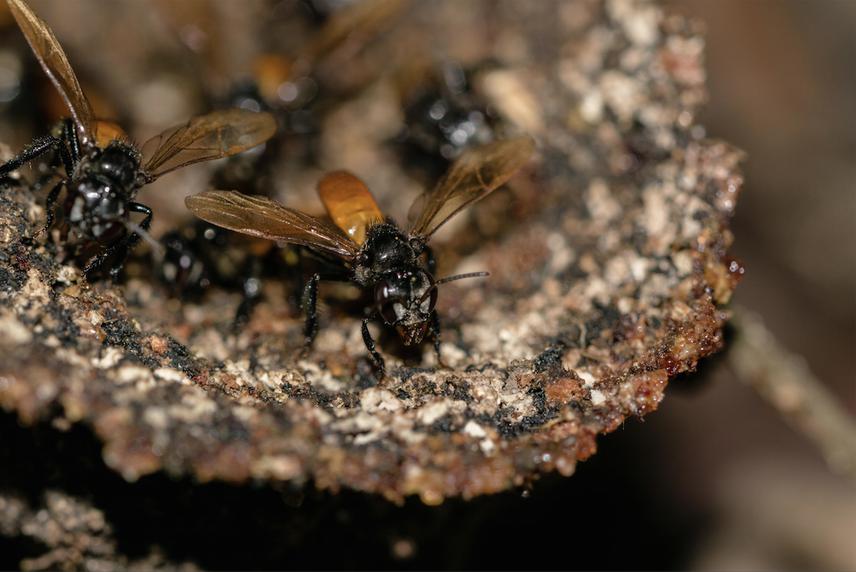Sandra Marcela Cely Santos
Un-managed native bees and traditionally managed agro-ecosystems are currently threatened by the expansion of industrial agriculture. This study aims to identify the influence of agricultural practices on native bees and on the pollination services provided to a staple crop, guatila (Sechium edule); and to evaluate, Visibility and revitalize the interdependence between people and native bees in Anolaima, Colombia.

Bee-mediated cross-pollination benefits more than half of the major crop species grown worldwide. More numerous and diverse bee communities are essential for many crops by increasing yields, quality and stability of fruit and seed set. Bee populations have undergone dramatic reductions over the last few decades. Wild bees moving between natural habitats and farms are common pollinators of both subsistence and commercial crops in small-scale agro-ecosystems. Like un-managed native bees, smallholders are essential but often overlooked contributors to global food security. Both are threatened by the expansion of industrial agriculture.
Diversified small-scale tropical agro-ecosystems host high levels of biodiversity, sustain a majority of the rural population, provide sustained ecosystem goods and account for about 70% of the global food production. Farmers in tropical diversified agro-ecosystems grow, among others, staple crops such as guatila (Sechium edule: Cucurbitaceae), which represents safe access to food to secure rural livelihoods. Guatila is a plant species with unisexual flowers expected to require animal vectors for cross-pollination and successful reproduction. This plant species flowers and fruits throughout the year, representing a continuous resource for bees and human consumers alike.
Various studies have investigated agricultural change and its relationship to the provision of pollination services to agricultural commodities. However, the importance of bee pollination for smallholder livelihoods is largely unknown. Thus, this project aims to:
1) identify the influence of agricultural practices on native bees and on the pollination services provided to a staple crop, guatila (Sechium edule);
2) evaluate the importance of bees and pollination for rural livelihood security;
3) co-produce guidelines with farmers to encourage native bee communities in Anolaima, Colombia.
This study aims to understand the interdependence between smallholders, ecosystems and bees in light of the progressive undermining of diversified agro-ecological landscapes, and in a context of increasing conservation efforts to counteract pollinator declines. Knowledge about the benefits of pollination for cash and staple crops essential for rural livelihood security is vital for informing the design and implementation of conservation efforts to protect bee populations across agricultural lands.